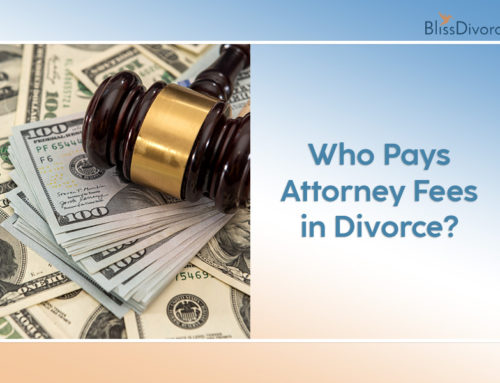Q: How much does a trial cost?
A: Divorce trials can be costly. For your lawyer to prepare for and conduct a divorce trial seldom costs less than $10,000 to $20,000. Costs can go even higher, even up to $100,000 or more if the issues are complex, and include disputes such as the value of a self-owned business or a custody dispute where each parent desires primary custody. By the time your case goes to trial, you should have a good sense of the cost of legal proceedings, but again, it is always, always appropriate to ask your lawyer how much, or how much more, the case will cost. You should know how much it will cost if you choose to proceed to trial, especially if you are having difficulty agreeing on a settlement. You should know how much it will cost if you cannot settle.
Q: Can I get my spouse to pay my legal fees?
A: In most states, the court can order one spouse or the other to pay legal fees. But after a full trial between two people who once loved each other very deeply, many judges wish to be done with the case. They may see a request for an award of attorney’s fees as furthering the litigation. Your lawyer should be able to give you a good idea of your chances of receiving an award of attorney’s fees from the particular judge to whom your case is assigned.
Q: Is the trial before a jury or just a judge?
A: Most states do not allow a jury trial for a divorce case—your trial is before a judge alone. Georgia allows a jury trial on issues of money in a divorce; Texas allows a jury trial on certain custody issues, but very few other states allow juries for any part of a divorce. However, state laws change often, so ask your lawyer or do your own legal research for specific information on this matter.
Additionally, many states are now creating “family courts,” where judges who specialize in divorce, custody, and other family law issues hear divorce cases and make judgments. If your state or community does not have this type of court, then your judge may preside over a grand theft auto case one week, your divorce another week, and then a murder case the next week. Consequently, he or she may not be as attuned to divorce cases, their specific laws, and the nuances of divorce laws as you would like. But you have to deal with the judge you have and put your faith in the fact that this is a fair, impartial, knowledgeable person.

Source: shutterstock.com / Photo Contributor: Elnur
Q: How long does it take to get to trial?
A: States that have family courts move divorce cases along relatively quickly. In more difficult cases, such as ones where custody issues are very complicated, the court may need more information such as psychologists’ assessments, testimonies of teachers, friends, and neighbors, medical testimony, and financial evaluation. Those cases take longer. On average, a contested case that goes through the entire pre-trial and trial processes can easily last one year or longer.
Q: Is it common to call a large number of witnesses?
A: No. The most common divorce trial has only two witnesses, the two parties. Through attorney questioning, you will help the judge understand the facts and disputes of your case.
Of course, in many cases, there are witnesses called. For example, your attorney may call experts or “fact witnesses,” people who have observed specific things like good parenting or adultery. There may be accountants or real estate appraisers, who tell the court how much money the husband’s business is worth, or how much the vacation house the couple owns will be worth in the current real estate market. This information helps the judge decide how assets should be divided between the two parties.
Other witnesses may include psychologists who testify about the mental state of one party or the other, helping the judge determine custody arrangements. In some cases, private investigators may be useful to testify about the behavior of one of the parties, showing evidence that the wife has been drinking in the local bars when she said she is a teetotaler. When children are involved, a guardian ad litem, a third party appointed in custody cases to help the court determine what is best for the children, may testify about their findings to the judge. Some of these witnesses may testify in court, but often, they testify by deposition.

Source: shutterstock.com / Photo Contributor: Elnur
Q: Do expert witnesses get paid for their services?
A: Yes, these expert witnesses are qualified professionals in their field. If you call the witness—perhaps a real estate appraiser to assess the value of the house you and your spouse are fighting over—you pay for his or her services. Such witnesses may cost thousands of dollars for their research time, preparation, and presentation of their testimony. Such professionals are working for you and your case and must be paid for their time and service.
*This article is for informational purposes only and is not intended to provide legal advice. If you require legal advice, please contact a licensed attorney in your local area.




